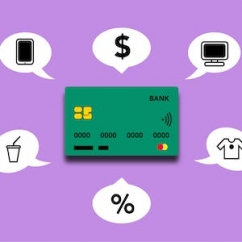Sales Strategy
The Top 5 Marketing Strategies Dominating Retail Budgets December 27, 2023 (0 comments)

New York, NY--The success and profitability of businesses largely hinge on their marketing strategies. Retailers often dedicate a significant portion of their annual budget to these strategies, viewing them as expenditures and crucial investments in their brand's growth and customer engagement.
[Photo by Monstera Production via Pexels]
With the digital era reshaping marketing approaches, retailers now have access to various channels to connect with their audience, as pointed out in a blog post.
1. The Digital Advertising Revolution
Digital advertising is critical to retail marketing, encompassing various online platforms such as social media, search engines, and diverse websites. Retailers favor digital ads for their wide-reaching capabilities and ability to target specific demographics accurately. This segment involves steps like identifying the target audience, choosing the right platforms, crafting and optimizing ads, and analyzing performance for continual improvement.
2. Optimizing for Search Engines
Search Engine Optimization (SEO) is fundamental to a retailer's online visibility. As most shopping journeys begin with a search engine, appearing prominently in search results is essential. SEO is a long-term strategy that improves user experience and website quality to meet search engine criteria. It includes keyword research, website optimization, content strategy, and building a quality backlink profile.
3. Mastering Social Media Marketing
Social media marketing is integral to a retailer's strategy, offering a platform for direct customer engagement and product promotion. Retailers must strategically select platforms based on their target audience's presence and preferences. Effective social media marketing involves creating engaging content, fostering community engagement, and leveraging influencer partnerships.
4. Personalized Email Marketing
Email marketing remains a potent tool due to its direct approach and impressive ROI. Retailers use email marketing for personalized communication with a curated list of subscribers. Key components include building a subscriber list, segmenting and personalizing messages, running regular campaigns, and tracking performance for ongoing refinement.
5. Engaging Through Events and Experiential Marketing
Event and experiential marketing offers immersive brand experiences going beyond traditional advertising. This strategy involves planning unique events that resonate with the brand's identity, choosing the right location and timing, promoting effectively, and engaging with attendees for lasting impact.
Learn more in the entire article.






